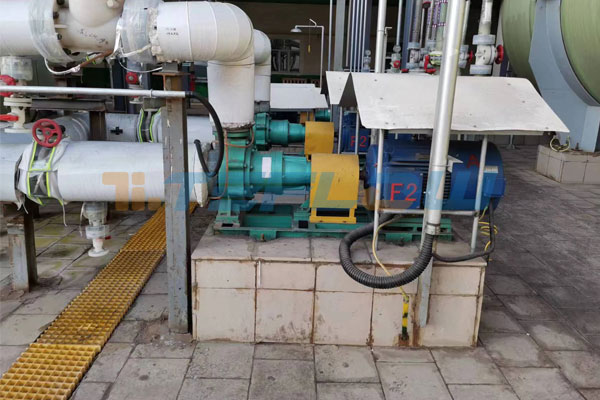In the electronic semiconductor manufacturing industry, wastewater treatment is of paramount importance to meet environmental and compliance requirements. The selection of wastewater treatment pumps involves ensuring efficient wastewater handling while also considering cost-effectiveness and environmental protection. This article explores the selection strategies for wastewater treatment pumps in the electronic semiconductor industry to meet its specific needs.
1. Analysis of Wastewater Characteristics: Before choosing wastewater treatment pumps, a comprehensive analysis of the wastewater's characteristics is essential. In the electronic semiconductor industry, wastewater may contain various chemicals, solid particles, varying pH levels, and other factors. Understanding the chemical composition and pH of the wastewater is crucial for selecting the appropriate pump.
2. Corrosion Resistance: As wastewater in the electronic semiconductor industry may contain corrosive chemicals, the selected pump must possess excellent corrosion resistance. Pump materials should be chosen to withstand the corrosion caused by specific chemical substances in the wastewater, such as corrosion-resistant plastics or stainless steel.
3. Flow Rate and Head Requirements: Based on the flow rate and requirements of wastewater treatment, selecting the right pump model and specifications is necessary. Ensuring that the pump's flow rate and head match the requirements of the wastewater treatment system is crucial for efficient water treatment.

4. Pump Design and Sealing: The electronic semiconductor industry typically requires highly corrosion-resistant pumps while also considering the pump's sealing performance. Magnetic drive pumps and centrifugal pumps are common choices because they can provide excellent sealing, reducing the risk of leaks.
5. Automation and Monitoring: Consider integrating wastewater treatment pumps into an automation system to enable remote monitoring and operation. This helps in promptly detecting and addressing issues, enhancing system reliability.
6. Cost-Effectiveness and Sustainability: Take a comprehensive approach considering the pump's procurement cost, maintenance costs, and energy efficiency. Choose pumps that can reduce operational costs in the long run while also considering their environmental impact.
7. Compliance with Regulations: The electronic semiconductor industry is subject to strict environmental regulations and standards. Ensure that the selected pumps comply with relevant regulations to avoid potential compliance issues.
In the electronic semiconductor industry, the selection of wastewater treatment pumps requires a comprehensive consideration of wastewater characteristics, corrosion resistance, flow rate and head requirements, design and sealing, automation and monitoring, cost-effectiveness, and regulatory compliance. The right pump selection strategy will help improve the efficiency of wastewater treatment, reduce environmental impact, and ensure the company's compliance with regulations.





 +86 18130251359
+86 18130251359 teflowpumps@tlpumps.com
teflowpumps@tlpumps.com








 +86+0563-5093318
+86+0563-5093318
